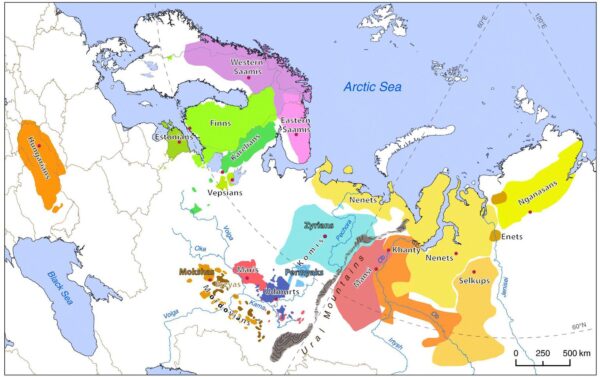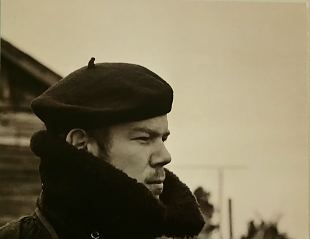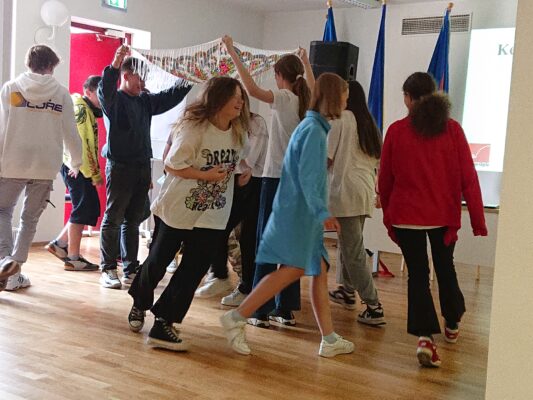Fenno-Ugria at Paide Opinion Festival 11 August 2023: “Russian aggression in Ukraine and Finno-Ugric peoples”
Fenno-Ugria organised a panel discussion on 11 August at the Paide Opinion Festival. The panelists were Jaak Prozes (Fenno-Ugria adviser), Aimar Ventsel (ethnologist), Tõnu Seilenthal (Fenno-Ugria board member, Finno-Ugrist), Anna Kuznetsova (Fenno-Ugria project manager of Komi origin). The moderator was Barbi Pilvre (Director of Fenno-Ugria).
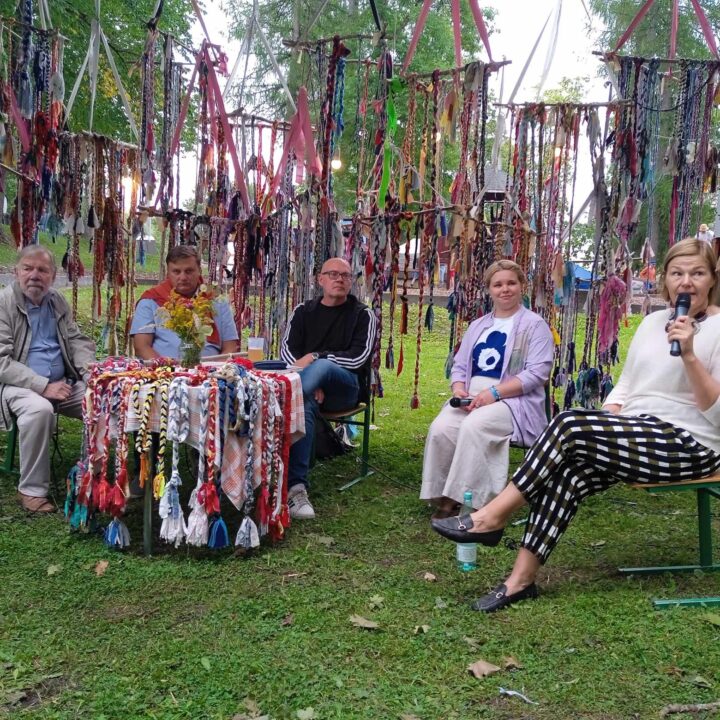
Putin’s regime has mobilised mainly from the Russian countryside in its aggression against Ukraine. There, dwindling and Russifying minority communities have at times taken an officially pro-Putin stance. As Finno-Ugric people, are we Estonians also co-responsible for the behaviour of Russia’s kindred peoples? Has Uralic cooperation in intellectual circles over the past 50 years run into the sand?
Mobilisation has taken place from rural areas and does not only concern Finno-Ugric people, because it is usually easier due to economic situation and educational background, and the villagers are often not aware of their rights to challenge the army draft. This has affected already dwindling and identity-crisis and Russifying minority communities, including Finno-Ugric people in a purely physical sense. Many minority ethnic communities have, moreover, taken an officially pro-Putin stance in the war, and do not appear to be interested in greater ethnic autonomy in the Russian Federation. One of the speakers on the panel, Tõnu Seilenthal, a lecturer at the University of Tartu, one of the main developers of Finno-Ugric studies in Estonia and a member of the board of Fenno-Ugria, discussed the dual identity of Russia’s small Finno-Ugric communities – their national and Russian identity.
Thus, our Finno-Ugric tribal peoples, as loyal Russians, are as if co-responsible for Kremlin policy. Another panelist at the Opinion Festival, ethnologist Aimar Ventsel from the University of Tartu, spoke about the national identity of Russia’s indigenous peoples, including Finno-Ugric peoples. Anna Kuznetsova, a PhD student at the University of Tartu and project manager of Fenno-Ugria, commented on the situation in Komi.
How the changed political situation affects Finno-Ugric cooperation and the kindred people movement, whether as Finno-Ugric people we Estonians are also co-responsible for the behaviour of our kindred peoples in Russia – one could provoke – and that the close kindred cooperation in intellectual circles over the last 40-50 years has run into the sand: their national self-awareness has not been sufficiently awakened. The situation is, of course, more ambivalent, given the violence of the Russian regime and the sanctions that accompany any manifestation of disloyalty in the current situation. Older people who lived under the Soviet regime know what this means, but we still have to explain it again and again. The situation in Estonia, where the Finno-Ugric communities (Mari, Udmurts, Erzya, etc.) are mainly of Russian citizenship, is also sensitive. It is mainly due to the influence of Russian-language information media and not always sufficient media literacy that Finno-Ugric communities of Russian origin and Russian citizenship living in Estonia are unfortunately sometimes under the influence of the ideological manipulations of the Putin regime. Communicating with relatives and acquaintances in Russia adds to the confusion and causes conflict. All this is also a great psychological burden when worldview divisions run within families. Many close relationships are also broken.
In this situation, Fenno-Ugria has the opportunity and the duty to intervene in the public debate, also by raising painful issues and sharing information about what is happening in Russia from the perspective of Finno-Ugric peoples. There are 8 Finno-Ugric cultural associations in Estonia: the Mari and Udmurt societies in Tallinn and Tartu, the Estonian Mordvin Society, the Erzya cultural association Sjatko, the Komi cultural association, the NGO Hõimulõimed. Most of them are members organisations of Fenno-Ugria, and a number of societies are also affiliated to the umbrella organisation of Estonian national minorities, the Estonian Community of National Minorities (ERÜ). Fenno-Ugria, whose mission is to stand up for the survival and development of Finno-Ugric peoples, cultures and languages, cooperates regularly with local Finno-Ugric societies, keeping abreast of their activities and taking an interest in their vitality. The leaders of the societies are predominantly open-minded young middle-aged people educated in Estonia with the support of the Kindred Peoples’ Programme, but there are also many members who live in a Russian-speaking manic communicative space.
In March 2022, Fenno-Ugria adopted a declaration condemning the hostilities and cutting off cooperation with pro-war organisations.
Communication takes place only on a personal level and many relations have also broken down for political reasons. The Kindred Peoples’ Programme does not currently fund kindred peoples’ projects in Russia or directly related to Russia, which is also a big change. Finno-Ugric students of Russian citizenship at the University of Tallinn and the University of Tartu can now continue their studies, but no new ones are accepted.
In order not to put down the kindred peoples’ movement towards Russia, Fenno-Ugria is of course ready to re-establish relations if the situation changes – this will be possible after the end of the war. In the new geopolitical situation, where relations with Russia have been severed, Fenno-Ugria has focused on working with local Finno-Ugric communities with links to Russia, in order to influence – ideally through them – the tribal peoples living in Russia. In the field of civic education, Fenno-Ugria is currently working on a project funded by the Open Estonia Foundation/Citizens in Action, entitled “School of Democracy for the Estonian Finno-Ugric communities to understand and cope with the new geopolitical situation”. Seminars on understanding Russia (political analyst Kadri Liik, intelligence expert Ivo Juurvee), psychology topics on crisis, trauma and coping with it, a summer school on shame and guilt (clinical psychologist Inga Ignatieva, folklorist Madis Arukask), as well as training on cyber hygiene and cyber security (Propastop representative, MKM) have taken place. Our discussion at the Opinion Festival also dovetailed with the objectives of this project.
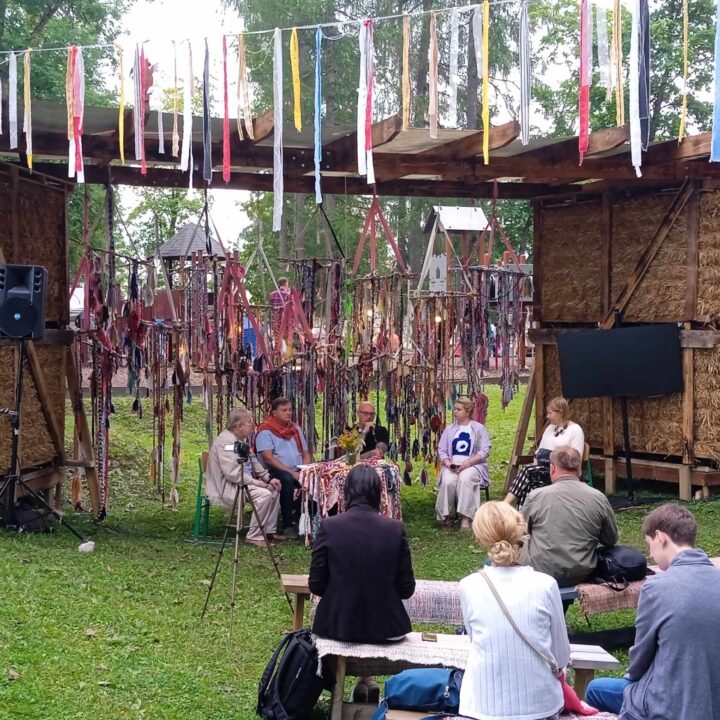
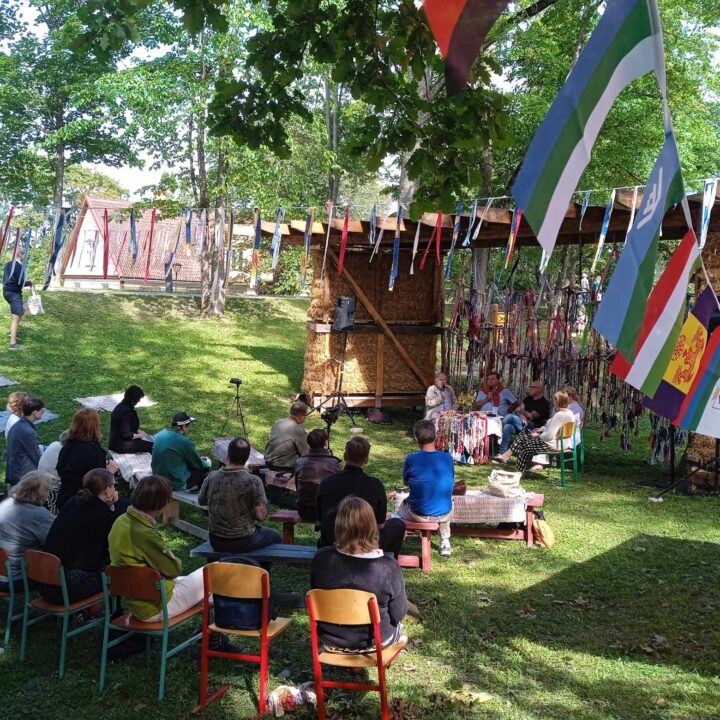
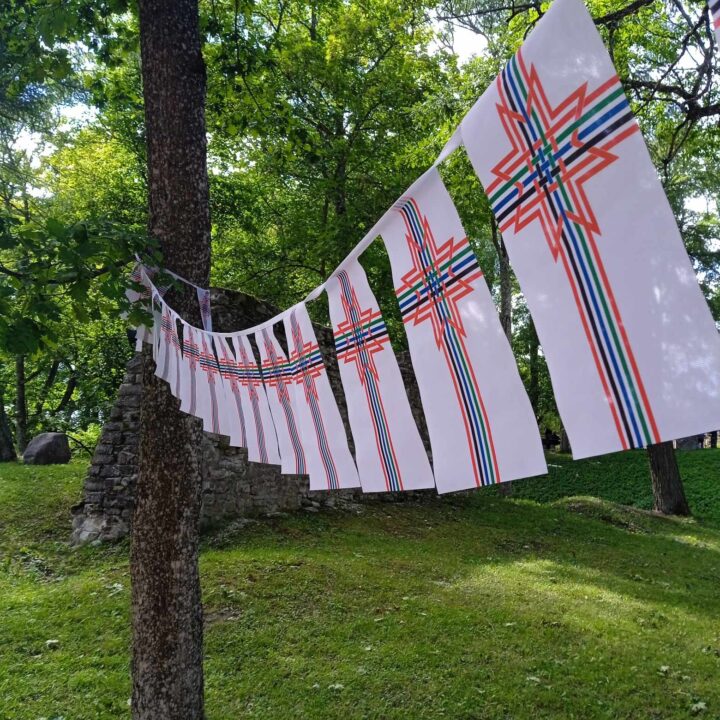
- Recording of the panel discussion on Youtube (in Estonian)
- Tõnu Seilenthal on cooperation with the Finno-Ugric peoples of Russia
- Introduction to the Opinion Festival panel “Russian aggression in Ukraine and Finno-Ugric peoples”
- Aimar Ventsel: “There is a confused perception in Estonia that all non-Russian peoples in Russia dream of freedom and hate Russians. In fact, this is not the case.” (25.03.2023 Õhtuleht, for subscribers in Estonian)
